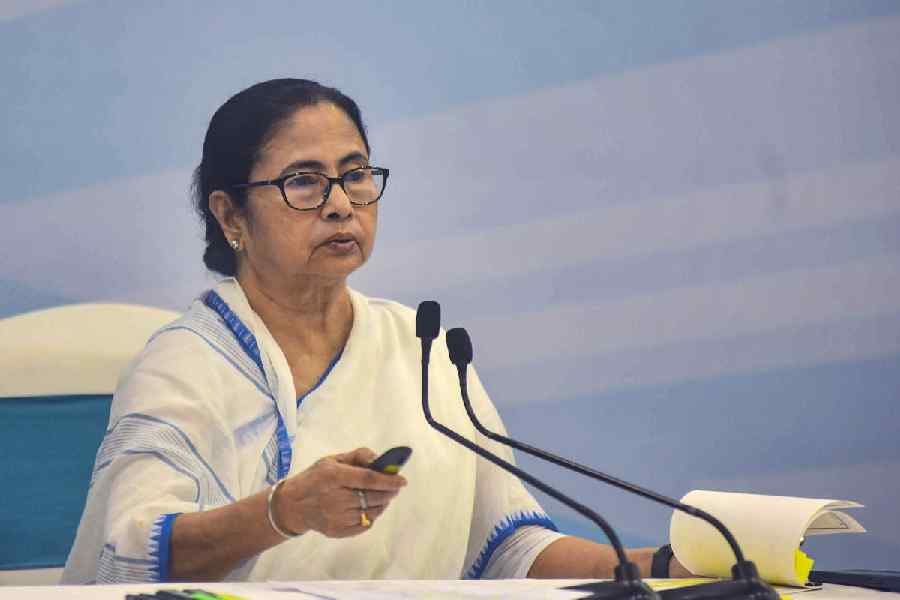The state government will not impose Bengali on school students through the three-language formula, chief minister Mamata Banerjee said at a programme in Jhargram on the occasion of International Tribal Day on Wednesday.
The chief minister said her government has left it to the students to decide what they want to study as first, second and third languages under the three-language formula.
“Some are trying to spread misconceptions about the language policy. We don’t want this. What we discussed in the state cabinet on Monday is the three-language formula. For those who study in Bengali-medium schools, their first language is Bengali. They can study any other subjects as second language and third language — it could be English, Hindi, Nepali or any other subject,” Mamata said in her address.
“For instance, in Darjeeling, there are schools where the first language is Nepali. They (the students in those schools) can opt for two more subjects from options, which may include English, Bengali or Hindi…. So it is not that we have imposed anything by force," she said.
The chief minister said the second language may be English or any language, depending on the choice of students.
"And the third language may be any other language... other than the first and second languages. This is what we have decided. So it is not that we have imposed Bengali on anyone."
This newspaper reported on Tuesday that two BJP lawmakers raised the "language imposition" issue in the Darjeeling hills a day after the state cabinet approved a draft education policy, which, among other things, contains details of the three-language formula.
The BJP lawmakers — Darjeeling MP Raju Bista and Kurseong MLA B.P. Sharma (Bajgain) — issued statements on Tuesday hinting that the state government was imposing Bengali language on students across the state.
An official in the education department said the clarification from the chief minister was crucial because language has been an emotive issue in the hills.
In May 2017, then Bengal education minister Partha Chatterjee had said students of all schools in the state would have to learn Bengali as a compulsory subject from Classes I to X under the three-language formula, irrespective of their native tongue or the boards their institutes are affiliated to.
The comment triggered a strife in the hills that continued for 104 days.
The chief minister said: “We live in Bengal. Maximum number of schools here are Bengali-medium. We also have English-medium schools. Those who speak Bengali, they will study in Bengali. They can take two other subjects. One can opt for English, Hindi, Nepali or Urdu. Those who have Urdu as their first language will study Urdu. It has to be remembered that we have a three-language formula,” the chief minister said.
“My mother tongue will be the number one language (first language). There will be options for second language and third language, which students will choose," Mamata said.
The chief minister cleared the air on the language policy a day after education minister Bratya Basu said schools would be at liberty to choose the languages they want to offer as part of the three-language formula, based on the availability of infrastructure and resources, such as subject teachers and the number of applications a school receives.
The three-language formula seeks to promote multilingualism.
The National Education Policy of the Centre seeks to continue with the three-language formula from Classes I to VIII. But Bengal's draft education policy seeks to introduce the formula at the upper primary level (Classes VI to VIII).
